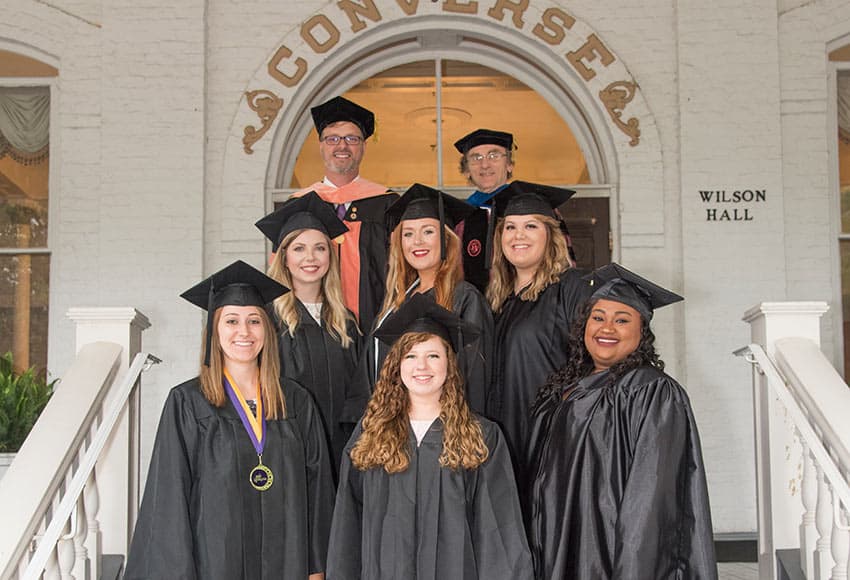A Healthy Outlook on New Healthcare Degree Programs

Holly Ceremuga ’18 once thought about becoming a doctor or nurse. After all, her mom, Sandi, is a registered nurse who works as an administrator for a healthcare provider. A couple of years ago, Holly learned something about herself—and discovered Converse’s new degree program in the business of medicine. “I took a biology course and thought, nope, this is not for me,” the 23-year-old says. “I decided to go into the business side so I could still be in healthcare.” Today, she works for physicians’ offices at Mary Black Health System. Just two years prior, she transferred from Clemson after learning about Converse’s new program in Healthcare Administration. She graduated in May among the College’s first students to earn the degree.
“Seven young women were brave founding sisters of this new degree at Converse.”
“Seven young women were brave founding sisters of this new degree at Converse,” says Lori Winkles, Vice President of Professional Services at Spartanburg Regional Healthcare System and a professor in the program. “We couldn’t be more thrilled that they took a chance.” Dr. Woody Hughes, Associate Professor of Economics at Converse and the program’s co-director, is equally as happy, especially since most of the graduates are already employed in their field. And thanks to the program’s established success at the undergraduate level, Converse recently received accreditor approval to add a master’s level program in healthcare management, which will open this fall. Only two other institutions in the state offer similar programs: the Medical University of South Carolina and the University of South Carolina. Hughes attributes the undergraduates’ success to their immersion in business courses coupled with “very applied or specific informational and skill sets that deal directly with the healthcare industry. For example, one of the first courses is healthcare communications – basically how to communicate with patients and their families.”
Converse saw the need and is willing to adapt and be innovative
That’s an increasingly crucial component of healthcare today, notes Dr. David Church, who is Spartanburg Regional’s Vice President for Oncology and Support Services and co-directs the program with Hughes. “We talk a great deal through the various classes about the difficulty of balancing the bottom line with compassionate, quality care.” Winkles has been impressed by Converse students in the program. “They are a very compassionate group of young women who also have strong business sense. They seem to understand that you have to have a balance between providing compassionate care and managing a business.” The feeling from students is mutual. “The professors have so much experience that they were willing to share with us, and they would relate everything we were learning in class back to something we would be dealing with when we got out to do our job,” Ceremuga says. Those jobs are plentiful—and lucrative. The U.S. Bureau of Labor Statistics reports that an administrator’s average annual compensation tops $96,000, and forecasts some 2.4 million new healthcare jobs by 2026. “Converse saw the need,” Church says, “and Converse is willing to adapt and be innovative.” Originally published in The Converse Magazine.